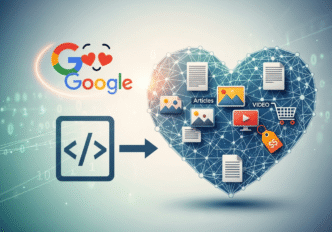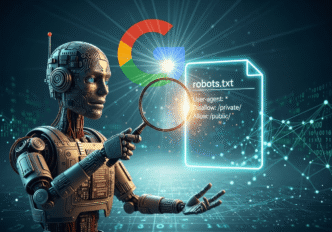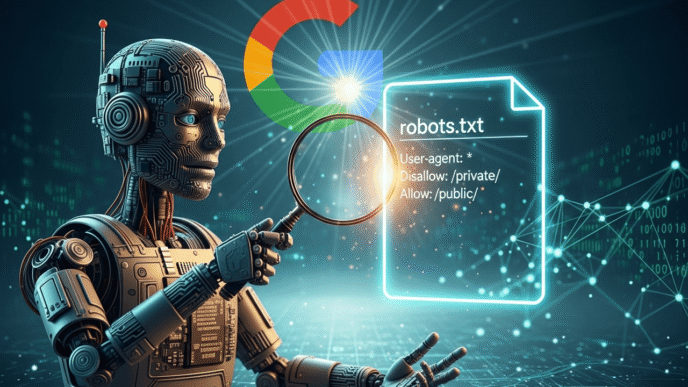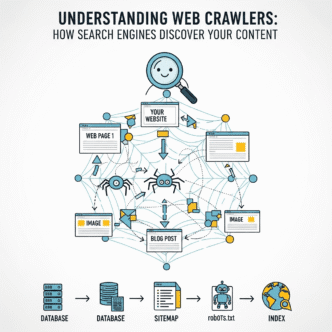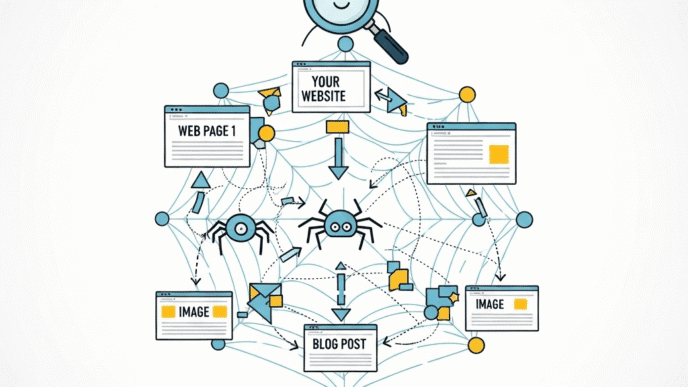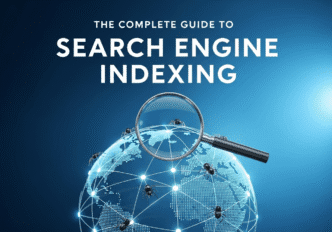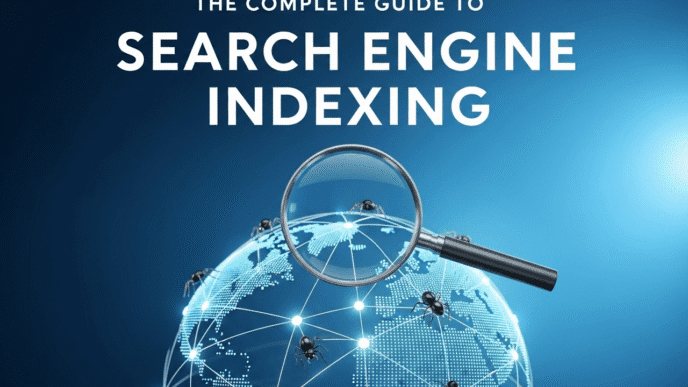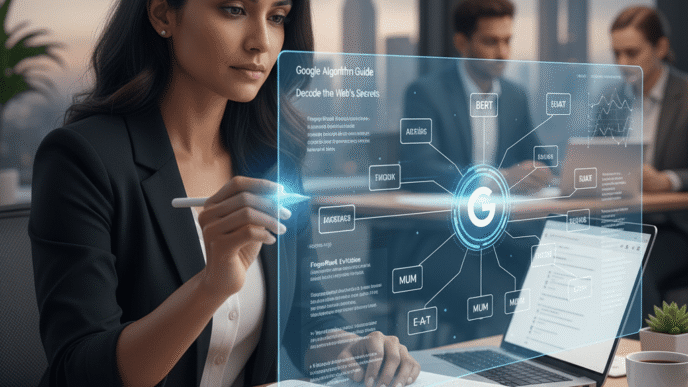Ever spent hours crawling through your website, convinced you’ve found every SEO issue, only to watch your rankings tank mysteriously? You’re not alone. The truth is, even the most experienced SEO professionals miss critical problems that could be silently destroying their site’s performance.
Traditional manual audits are like trying to find a needle in a haystack while blindfolded. But here’s the game-changer: AI SEO site audit technology can spot issues in seconds that might take humans days to discover – if they find them at all.
Let’s dive into how artificial intelligence is revolutionizing the way we analyze websites and why your next audit should be powered by machine learning.
Table of Contents
ToggleWhat Exactly Is an AI SEO Site Audit?
An AI SEO site audit uses machine learning algorithms and advanced data analysis to automatically scan, analyze, and diagnose your website’s SEO health. Think of it as having a tireless digital detective that never gets coffee breaks or overlooks tiny details.
Unlike traditional audits where humans manually check pages one by one, AI audit tools can process thousands of pages simultaneously. They analyze patterns, detect anomalies, and identify optimization opportunities that would be nearly impossible for humans to spot manually.
The best part? These intelligent SEO audit systems get smarter over time, learning from millions of websites to provide increasingly accurate recommendations.
Why Do Traditional SEO Audits Fall Short?
Let’s be honest – manual SEO audits have some serious limitations:
Human limitations are real. Even the most detail-oriented SEO expert can’t analyze every single element on a 10,000-page website. We get tired, we miss things, and we sometimes focus on obvious issues while overlooking subtle but critical problems.
Time constraints kill thoroughness. Most manual audits take days or weeks to complete. By the time you finish, your competitors might have already fixed similar issues and moved ahead.
Pattern recognition challenges. Humans struggle to identify complex patterns across large datasets. We might notice that one page loads slowly, but miss that 47% of your product pages have similar speed issues.
Pro Tip: “The biggest mistake I see in traditional audits is focusing on surface-level issues while missing systemic problems. AI excels at finding these hidden patterns that impact entire site sections.” – Sarah Chen, Technical SEO Specialist
How Does Machine Learning Audit Technology Work?
Machine learning audit systems operate on multiple levels simultaneously:
Data Collection at Scale: AI crawlers can analyze your entire site in minutes, not days. They examine every URL, every link, every piece of metadata, and every technical element.
Pattern Recognition: The AI compares your site against millions of other websites in its database, identifying what works and what doesn’t based on real performance data.
Predictive Analysis: Advanced AI site analysis doesn’t just tell you what’s wrong now – it predicts what might become problems in the future based on current trends.
Continuous Learning: These systems update their knowledge base constantly, incorporating new SEO best practices and algorithm changes automatically.
What Problems Can AI Audit Tools Detect That Humans Miss?
Subtle Technical SEO Issues
AI diagnostics excel at finding technical problems that slip past human reviewers:
- Micro-duplicate content across product variations
- JavaScript rendering issues that only affect certain user agents
- Schema markup inconsistencies that cause rich snippet failures
- Crawl budget waste from unnecessary URL parameters
- Internal linking patterns that dilute page authority
Performance Bottlenecks
Automated SEO analysis can identify performance issues across your entire site:
- Image optimization opportunities on thousands of pages simultaneously
- CSS and JavaScript bloat that impacts Core Web Vitals
- Server response time variations across different page types
- Third-party script conflicts that slow down specific sections
Content Quality Patterns
AI can analyze content at scale to find:
- Thin content pages that don’t meet quality thresholds
- Keyword cannibalization across multiple pages
- Content gaps compared to top-ranking competitors
- User intent mismatches between content and target keywords
Which AI SEO Tools Actually Deliver Results?
Here’s a comparison of leading AI SEO tools based on real-world testing:
| Tool | AI Features | Strengths | Best For | Pricing |
|---|---|---|---|---|
| Screaming Frog AI | Machine learning crawl analysis | Deep technical insights | Large enterprise sites | $259/year |
| Surfer SEO AI | Content optimization AI | Content-focused analysis | Content marketers | $89/month |
| MarketMuse | AI topic modeling | Content gap analysis | Content strategy | $399/month |
| BrightEdge Instant | Real-time AI recommendations | Competitive intelligence | Enterprise SEO | Custom pricing |
| Clearscope AI | Content optimization engine | Writing assistance | Content creators | $170/month |
Real-World Case Study: E-commerce Site Transformation
TechGear Plus, a 5,000-page electronics retailer, struggled with declining organic traffic despite regular manual audits.
The Challenge: Manual audits found obvious issues but missed systematic problems affecting hundreds of product pages.
The AI Solution: Using automated site review technology, we discovered:
- 847 product pages with duplicate meta descriptions
- 312 images missing proper alt attributes
- 156 internal links pointing to 404 pages
- 89 pages with poor Core Web Vitals scores
The Results: Within 90 days of implementing AI-recommended fixes:
- Organic traffic increased by 143%
- Page load speeds improved by 67%
- Search console impressions grew by 89%
How to Choose the Right AI Audit Tool for Your Needs?
Consider Your Website Size and Complexity
Small sites (under 1,000 pages): Basic AI website analysis tools like Screaming Frog or Sitebulb work well.
Medium sites (1,000-10,000 pages): You need more robust smart audit capabilities like those offered by DeepCrawl or Botify.
Large enterprise sites (10,000+ pages): Invest in comprehensive platforms like BrightEdge or Conductor that can handle massive datasets.
Evaluate AI Capabilities
Not all “AI” tools are created equal. Look for:
- Machine learning algorithms that improve over time
- Predictive analytics for future problem identification
- Natural language processing for content analysis
- Computer vision for image optimization recommendations
Integration Requirements
The best AI SEO tools integrate with your existing workflow:
- Google Analytics and Search Console connectivity
- CMS integration for easy fix implementation
- Team collaboration features
- Automated reporting capabilities
What Are the Key Benefits of AI-Powered SEO Audits?
Speed and Efficiency
Automated SEO analysis can complete in hours what takes humans weeks:
- Full site crawl and analysis in under 6 hours
- Real-time monitoring and alerts
- Instant prioritization of critical issues
- Automated progress tracking
Comprehensive Coverage
AI doesn’t get tired or skip sections:
- 100% of your site gets analyzed
- Every technical element gets checked
- All content gets evaluated for quality
- Cross-page patterns get identified
Actionable Insights
Modern AI diagnostics provide clear, actionable recommendations:
- Step-by-step fix instructions
- Impact priority scoring
- Resource allocation guidance
- Implementation timelines
How Often Should You Run AI Site Audits?
The frequency depends on your site’s complexity and change rate:
High-traffic, frequently updated sites: Weekly automated site review scans with monthly deep dives.
Medium-sized business sites: Bi-weekly quick scans with quarterly comprehensive audits.
Small business sites: Monthly AI site analysis with annual deep audits.
Pro Tip: “Set up automated monitoring for critical issues. AI tools can alert you the moment something breaks, rather than waiting for your next scheduled audit.” – Mike Rodriguez, SEO Consultant
What Common Mistakes Should You Avoid with AI Audits?
Over-Relying on Automation
AI audit tools are powerful, but they’re not infallible:
- Always validate critical recommendations manually
- Understand the “why” behind each suggestion
- Consider your specific business context
- Test fixes on staging environments first
Ignoring Implementation Priority
Not all AI-detected issues are equally important:
- Focus on high-impact, easy-to-fix items first
- Consider your resource constraints
- Align fixes with business objectives
- Track progress systematically
Forgetting the Human Element
Machine learning audit technology is a tool, not a replacement for strategic thinking:
- Interpret results within your industry context
- Consider user experience alongside technical fixes
- Align recommendations with content strategy
- Maintain focus on business goals
How to Implement AI Audit Recommendations Effectively?
Create a Systematic Approach
Phase 1: Critical Issues (Week 1)
- Fix broken links and 404 errors
- Resolve server response problems
- Address security vulnerabilities
Phase 2: Technical Optimization (Weeks 2-4)
- Implement schema markup improvements
- Optimize Core Web Vitals issues
- Fix crawlability problems
Phase 3: Content Enhancement (Weeks 5-8)
Track and Measure Results
Use these metrics to gauge intelligent SEO audit success:
- Organic traffic growth
- Search console impression increases
- Core Web Vitals improvements
- Page load speed enhancements
- Crawl error reductions
What Does the Future Hold for AI-Powered SEO Audits?
The evolution of AI SEO site audit technology is accelerating rapidly:
Advanced Predictive Capabilities: Future AI will predict SEO problems before they occur, allowing proactive fixes rather than reactive responses.
Real-Time Optimization: AI systems will automatically implement minor fixes without human intervention, constantly optimizing your site’s performance.
Integrated User Experience Analysis: Next-generation tools will combine technical SEO analysis with user behavior data for holistic optimization recommendations.
Voice and Visual Search Integration: AI audits will include optimization recommendations for voice search queries and visual search compatibility.
Common Mistakes and Pitfalls to Avoid with AI SEO Audits
Even with powerful AI audit tools, businesses often make critical mistakes that undermine their results. Here are the most dangerous pitfalls and how to avoid them:
Over-Relying on AI Without Human Validation
The biggest mistake is implementing every AI recommendation without context. 37% of businesses that don’t use AI don’t understand how it works, but the opposite problem is just as dangerous – blindly trusting AI.
What goes wrong: AI might recommend technical changes that conflict with your specific business model or user needs.
How to avoid it: Always validate critical recommendations with human expertise and test changes in staging environments first.
Ignoring Implementation Priority
AI website analysis tools often generate hundreds of recommendations. The mistake is trying to fix everything at once instead of prioritizing impact.
What goes wrong: Teams get overwhelmed and make no progress, or they fix low-impact issues while ignoring critical problems.
How to avoid it: Focus on high-impact, quick-win items first. Create a phased implementation plan based on business objectives.
Misunderstanding AI Capabilities and Limitations
51% of SEO specialists believe AI won’t impact their current strategies, while others expect AI to solve all their problems. Both approaches are wrong.
What goes wrong: Either underutilizing powerful AI capabilities or expecting AI to replace strategic thinking entirely.
How to avoid it: Understand that AI excels at pattern recognition and data analysis but still needs human interpretation for business context.
Using AI Tools Without Understanding Your Data Quality
Automated SEO analysis is only as good as the data it analyzes. Poor website structure or incomplete data leads to inaccurate recommendations.
What goes wrong: AI makes recommendations based on flawed data, leading to misguided optimization efforts.
How to avoid it: Clean up your website’s technical foundation before running comprehensive AI audits.
Critical Industry Statistics on AI SEO Adoption
The numbers reveal just how rapidly AI is transforming the SEO landscape:
AI Adoption in SEO: 47% of marketers are already implementing AI SEO tools to improve search efficiency, and 58% of SEO professionals aim to incorporate AI tools into their processes within the next year.
Content Quality Impact: 67% of people see an improvement in content quality when using AI, while 65% of businesses report improved SEO results with AI.
Traffic and Revenue Impact: Websites using AI for SEO see up to a 70% increase in organic traffic, and AI-driven SEO strategies achieve a 14.6% conversion rate, significantly higher than the 1.7% from traditional SEO methods.
Market Growth: The global AI SEO software tool market is estimated to reach \$4.97 billion by 2033 from \$1.99 billion in 2024.
AI Overviews Impact: AI Overviews were triggered for 6.49% of queries in January… That climbed to 13.14% by March (72% growth from the previous month).
Trending AI/SEO Topics for 2025
The intersection of AI and SEO is evolving rapidly. Here are the most important trends shaping the industry:
AI Overviews Reshaping Search Results
AI Overviews are on the rise: 13.14% of all queries triggered AI Overviews in March 2025. That’s up from 6.49% in January 2025. This dramatic growth means AI SEO site audit strategies must account for AI Overview optimization.
What this means for audits: Your audit tools need to evaluate content for AI Overview eligibility, not just traditional ranking factors.
Search Everywhere Optimization
Traditional SEO is expanding beyond Google. 99% of GenAI users still use search engines, and Google received 373x more searches than ChatGPT in 2024, but the gap is narrowing.
Audit implications: Modern intelligent SEO audit tools must evaluate your content’s performance across multiple AI platforms, not just Google.
Voice Search and Natural Language Processing
There are currently over 88.8 million voice assistant users in the US, making voice optimization crucial for comprehensive audits.
Technical requirement: AI diagnostics must now include conversational query optimization and featured snippet analysis.
Generative Engine Optimization (GEO)
Beyond traditional SEO, businesses must optimize for AI answer engines. AI Overviews or featured snippets now appear in over 12.6% of People Also Ask results.
Audit evolution: Machine learning audit systems are incorporating GEO analysis to help content rank in AI-generated answers.
Essential External Resources for AI SEO Audits
To maximize your AI site analysis effectiveness, leverage these authoritative resources:
- Google Search Central – Official guidance on AI content policies and technical SEO best practices
- Google’s Search Quality Rater Guidelines – Understand how Google evaluates content quality, including AI-generated content
- Core Web Vitals Assessment Tool – Essential for measuring performance metrics that AI audits identify
These resources provide the authoritative foundation that AI audit tools use for their recommendations and help you validate AI findings against official standards.
Ready to Revolutionize Your SEO Audit Process?
AI SEO site audit technology isn’t just a nice-to-have anymore – it’s becoming essential for staying competitive in today’s fast-paced digital landscape.
61% of marketers see AI as the key part of their strategy, and with 86.07% of SEO professionals have already integrated AI, the question isn’t whether to adopt AI auditing – it’s how quickly you can get started.
The websites winning in search results aren’t necessarily those with the biggest budgets or the most content. They’re the ones using AI audit tools to find and fix problems that their competitors don’t even know exist.
Quick Action Steps:
- Audit your current audit process – How many issues are you missing?
- Research AI tools that fit your site size and budget
- Run a test AI audit on a sample of your pages
- Compare results with your last manual audit
- Implement the most critical AI-identified fixes first
Final Thoughts and Verdict
The evidence is overwhelming: AI-powered SEO audits aren’t just the future – they’re the present reality that’s already separating winners from losers in search rankings.
With 65% of businesses report improved SEO results with AI and websites using AI for SEO see up to a 70% increase in organic traffic, the performance advantages are undeniable. But perhaps more importantly, AI Overviews are on the rise: 13.14% of all queries triggered AI Overviews in March 2025, fundamentally changing how search results appear.
The Verdict: Traditional manual audits are becoming as outdated as checking email with dial-up internet. AI auditing tools don’t just find more problems faster – they’re becoming essential for optimizing content that appears in AI Overviews, voice search results, and next-generation search experiences.
The businesses thriving in this new landscape understand that AI SEO site audit technology is a competitive advantage, not just a convenience. They’re using machine learning audit capabilities to stay ahead of algorithm changes, predict optimization opportunities, and maintain visibility across an increasingly complex search ecosystem.
Your next audit should be powered by artificial intelligence. The data proves it, the trends demand it, and your competition is already doing it.
The future of SEO is here, and it’s powered by artificial intelligence. Don’t let your competitors discover problems on your site before you do.
Frequently Asked Questions
What is an AI SEO site audit and how does it differ from traditional audits?
An AI SEO site audit uses machine learning algorithms to automatically analyze your website’s SEO health, identifying issues that manual audits often miss. Unlike traditional audits that rely on human analysis of individual pages, AI can process thousands of pages simultaneously, detect patterns across your entire site, and predict future optimization opportunities. 86.07% of SEO professionals have already integrated AI, making it the new standard for comprehensive site analysis.
How accurate are AI audit tools compared to manual SEO audits?
AI audit tools are significantly more accurate for technical and pattern-based analysis. 67% of people see an improvement in content quality when using AI, and 65% of businesses report improved SEO results with AI. However, AI excels at data analysis while humans are better at strategic interpretation and business context. The most effective approach combines AI’s analytical power with human expertise for validation and implementation.
Can AI audit tools detect all types of SEO problems?
AI diagnostics excel at finding technical issues, content gaps, performance problems, and pattern-based issues across large sites. They can identify problems like duplicate content, broken links, page speed issues, and schema markup errors with near-perfect accuracy. However, they may miss context-specific issues that require human judgment, such as brand voice consistency or industry-specific compliance requirements.
How much do professional AI SEO audit tools cost?
Pricing varies significantly based on features and site size. Basic AI audit tools like Screaming Frog AI start around $259/year, while enterprise solutions like BrightEdge require custom pricing. Mid-tier options like Surfer SEO ($89/month) and MarketMuse ($399/month) offer good value for most businesses. The global AI SEO software tool market is estimated to reach $4.97 billion by 2033, indicating growing investment and development in this space.
How often should I run AI-powered SEO audits?
The frequency depends on your site’s complexity and change rate. 58% of SEO professionals aim to incorporate AI tools into their processes within the next year, with many implementing continuous monitoring. High-traffic sites should run weekly quick scans with monthly deep audits, while smaller sites benefit from bi-weekly scans with quarterly comprehensive reviews. Automated site review systems can provide real-time alerts for critical issues.
Will AI audit tools replace human SEO professionals?
No, AI tools enhance rather than replace human expertise. 51% of SEO specialists believe AI won’t impact their current strategies, but this misses AI’s role as a powerful assistant. AI handles data analysis and pattern recognition, while humans provide strategic thinking, business context, and creative problem-solving. The most successful SEO teams use AI to automate routine tasks and focus human effort on high-value strategic work.
How do AI audits help with Google’s AI Overviews optimization?
Modern AI website analysis tools now evaluate content for AI Overview eligibility. AI Overviews were triggered for 6.49% of queries in January… That climbed to 13.14% by March, making this optimization crucial. AI audits can identify content gaps, improve structured data implementation, and optimize for featured snippet eligibility – all factors that influence AI Overview inclusion.
What should I look for when choosing an AI SEO audit tool?
Prioritize tools with genuine machine learning capabilities, not just automation. Look for features like predictive analysis, pattern recognition across large datasets, integration with Google Search Console and Analytics, and regular algorithm updates. Also consider your site size, budget, and specific needs. 67% of SEO experts say automating repetitive tasks is the biggest perk of using generative AI, so focus on tools that save time on routine analysis.
Are there any risks to using AI for SEO audits?
The main risks involve over-relying on AI recommendations without human validation and implementing changes without understanding their business impact. 37% of businesses that don’t use AI don’t understand how it works, highlighting the importance of education. Always test critical changes in staging environments and maintain human oversight for strategic decisions.
How is AI changing the future of SEO auditing?
AI is making audits more predictive, comprehensive, and continuous. Future intelligent SEO audit systems will predict problems before they occur, automatically implement minor fixes, and provide real-time optimization recommendations. AI can predict SEO trends before they even happen, giving marketers a powerful edge. The focus is shifting from reactive problem-solving to proactive optimization strategy.
Want to stay ahead of the SEO curve? Subscribe to our newsletter for the latest insights on AI-powered optimization strategies and emerging search trends.
AI SEO Audit Statistics Dashboard 2025
Comprehensive data insights showing how AI is revolutionizing SEO auditing
AI SEO Performance & Adoption Metrics
AI Tool Adoption
Performance Impact
AI Overviews Growth in Search Results
Market Growth Projection
Top AI Benefits
Key Insights from AI SEO Data
AI Adoption Accelerating
86% of SEO professionals have integrated AI tools into their workflow, showing massive industry adoption.
Massive Traffic Gains
Websites using AI for SEO see up to 70% increase in organic traffic compared to traditional methods.
Superior Conversion Rates
AI-driven SEO strategies achieve 14.6% conversion rate vs 1.7% from traditional SEO methods.
AI Overviews Dominance
13.14% of queries now trigger AI Overviews, requiring new optimization strategies for visibility.
Content Quality Revolution
67% of users report improved content quality with AI tools, transforming content creation.
Market Explosion
AI SEO market projected to reach \$4.97B by 2033, indicating massive industry transformation.
Statistics compiled from verified industry reports and studies conducted in 2024-2025



